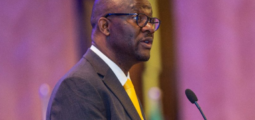Lending Helps JPMorgan, but 4th Quarter Was Soft
Wall Street, more than three years after the financial crisis, has loosened its lending tap. Consumers, however, have yet to reap the benefits.
Results announced on Friday by the nation’s strongest and biggest bank by assets, JPMorgan Chase, point to a divided economy where big businesses are gaining ground while consumers still cannot find their footing.
JPMorgan reported a weak fourth quarter, with earnings down 23 percent compared with the period a year earlier. The bank was hurt by a fourth-quarter slump in investment banking and other Wall Street businesses, which suffered amid the sluggish economic recovery and worries that the European debt crisis will spread.
One significant bright spot was the bank’s growth in corporate loans. The commercial banking unit’s profits rose to $643 million, a 21 percent increase from the previous year, as lending to corporations grew for the sixth consecutive quarter.
The strong results helped JPMorgan turn a $19 billion profit for 2011, up 9 percent from a year earlier.
The bank’s chairman and chief executive, Jamie Dimon, emphasized the uptick in lending. “I believe that you are seeing real loan growth,” Mr. Dimon said on a conference call with journalists. “And I think that will continue.”
The credit surge rippled through corporate America and the nonprofit world, too, as the bank lent to entities as varied as major corporations, hospitals, universities and local governments. Last year, JPMorgan lent $58 million to a cancer research center in Washington State. The bank also lent $17 billion to small businesses in the United States, a 52 percent leap.
“All types of corporations” are taking out loans, Mr. Dimon said, “large, small, medium, all types.”
But the figures highlight the differences between the corporate and consumer economies.
The bank’s student loans dipped more than 7 percent last year. Auto loans dropped nearly 2 percent. JPMorgan’s credit card lending fell 2.5 percent, to $132.2 billion at the end of 2011, though such loans rose 5 percent in the second half of the year.
“The consumer is still deleveraging,” said Jason Goldberg, a senior analyst with Barclays. “It’s not a lack of supply; it’s a lack of demand.”
While consumers are reluctant to take on extra debt when the economic outlook is uncertain, banks like JPMorgan also remain wary of increasing their exposure to individual borrowers, particularly potential homeowners.
JPMorgan made 765,000 mortgages in 2011, but, like other banks, it sells most of them to Fannie Mae and Freddie Mac, the government-controlled housing finance companies. Banks must hold layers of capital against mortgages they keep on their balance sheets, so selling to Fannie and Freddie can be an attractive alternative to holding them.
Nearly 90 percent of all mortgages made in the first nine months of 2011 wound up at a government agency, according to Inside Mortgage Finance, an industry trade magazine.
The reluctance of banks to keep control of mortgages underscores how distant a recovery is in the home loan market. JPMorgan’s holdings of mortgages to people with stronger credit rose by just 2 percent in 2011, to $76.2 billion, while its home equity loans fell 12 percent.
“We’re getting killed in mortgages, in case you hadn’t noticed,” Mr. Dimon said on Friday.
Banks also face a reckoning for their lax lending standards during the mortgage bubble. A wave of lawsuits, filed by Fannie, Freddie and private mortgage investors alike, has loomed large on the business since the dark days of the financial crisis. JPMorgan last quarter recorded a $528 million expense for restocking its mortgage litigation reserves.
“There’s going to be a long tail to this real estate cycle,” Mr. Goldberg said. “This could go on for years.”
Still, JPMorgan on Friday highlighted some encouraging signs for its consumer divisions. The bank set aside $730 million in fewer reserves for loan losses, as its credit card portfolio showed signs of life. That decision also increased earnings for Chase retail financial services, the bank’s consumer banking arm that offers services like mortgages and checking accounts. The unit earned $533 million in the fourth quarter, up from $459 million a year earlier.
JPMorgan, for all its lingering mortgage issues, has emerged from the financial crisis as one of Wall Street’s most dominant banks. In 2011, JPMorgan stripped Bank of America of its title as the nation’s biggest bank by assets.
Bank of America is struggling more than any other big bank to shed the legacy of the subprime mortgage mess.
“JPMorgan is in the best position for no other reason than they don’t have the troubles that Bank of America has,” said Jim Sinegal, an analyst with the research firm Morningstar.
But the JPMorgan profit engine stalled in the fourth quarter amid the weak economic conditions and as new federal rules reined in fees tied to overdrafts and debit cards, onetime revenue drivers. Revenue last year fell about 5 percent, to $99.77 billion, from $104.84 billion a year earlier.
Mr. Dimon, perhaps Wall Street’s most vocal opponent of the recent regulatory crackdown, called the debit card restrictions “a gross miscarriage of justice.”
JPMorgan also disclosed that a $567 million accounting loss weighed down revenue. The investment bank booked the loss in the fourth quarter tied to the perceived riskiness of JPMorgan’s own debt, reversing a one-time gain from last quarter that propped up earnings across Wall Street. In all, the investment bank’s revenue sank 30 percent in the fourth quarter.
Shares of JPMorgan closed down 2.5 percent, or 93 cents, at $35.92.
The revenue struggles are not unique to JPMorgan, a diversified bank seen as a gauge for the performance of Wall Street. When the nation’s other big banks — Goldman Sachs, Morgan Stanley, Citigroup and Bank of America — report earnings next week, most are expected to detail similar slowdowns in revenue.
“It’s hard to think of a bright spot on the revenue side,” Mr. Sinegal said. “That issue is going to linger.”
But Mr. Dimon on Friday offered hints of optimism for his bank — and the broader state of Wall Street and the economy.
“We have a mild recovery that might actually be strengthening,” he said. And the comeback appears to be “broad.”
You may have an interest in also reading…
Whither China’s Belt and Road Initiative?
The Belt and Road Initiative (BRI), launched by Xi Jinping, passed its tenth anniversary in 2023. It has entered a
The Franco-German Relationship Looks Set to Continue but Where Does This Leave the Greeks?
Newly-inaugurated French President Francois Hollande and German Chancellor Angela Merkel said on Tuesday they want Greece to remain in the
New Wealth Wave: How the Rich Are Getting Richer — and Younger
The number of ultra-wealthy individuals is increasing, and their average age is dropping. Why, and how? From the heads of



















































































